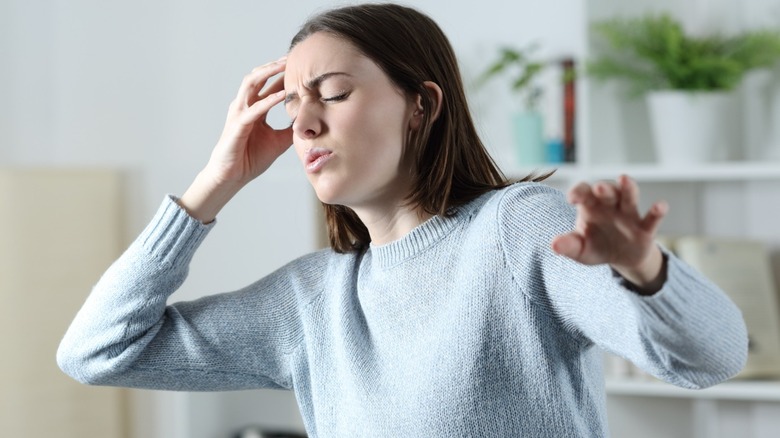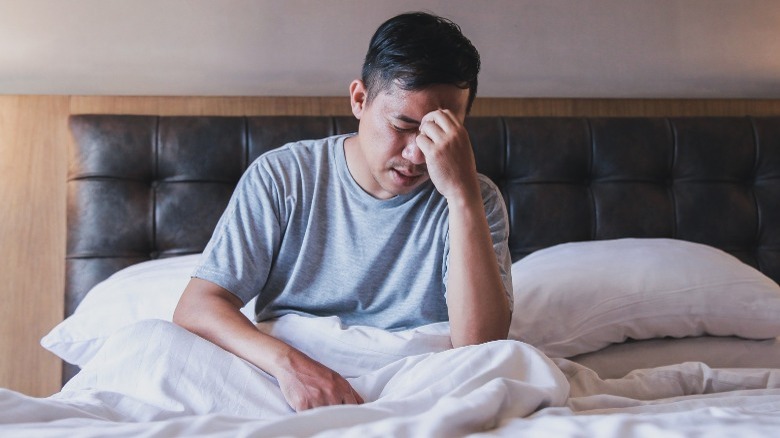Study Reveals A Surprisingly Simple Way To Prevent Dizziness When You Stand Up
If you've ever experienced lightheadedness after standing up, you're not alone. The reason for your lightheadedness upon immediately standing is likely due to a drop in blood pressure as your leg muscles engage to lift your body, causing a lack of blood flow to the brain (via NBC News). While it seems like a scary occurrence that could indicate a health concern, researchers suggest a simple way to eliminate the issue.
A 2022 study published in Heart Rhythm Journal explored simple measures to reduce these instances and included a small group of younger women who reported feeling dizzy when standing up. The researchers instructed the participants to engage in easy leg movements, including lifting their knees for 35 to 40 seconds before standing or crossing their legs in a tense fashion once they stood up. Both methods significantly reduced a drop in blood pressure.
This dizziness is called initial orthostatic hypotension (IOH), according to a 2007 study published in Clinical Science Journal. Dr. N.A. Mark Estes, a visiting professor of medicine and the program director for the Clinical Cardiac Electrophysiology Fellowship at the University of Pittsburgh, suggests IOH is common in younger women. While the condition is not life-threatening, it can be disruptive (via NBC News).
Other reasons you might feel dizzy
While a sudden drop in blood pressure due to standing is a common cause of dizziness, other issues could be causing your sense of wooziness and imbalance.
According to the experts at Healthline, migraines, medications, and alcohol consumption are all known causes of dizziness. If you are experiencing issues in your inner ear, this could also bring on dizziness as the inner ear controls your sense of balance. This is often attributed to vertigo, specifically benign-positional vertigo. You may experience this when changing positions too quickly, such as sitting up too soon in the morning after sleeping. Meniere's disease, which results from fluid building up in the ear, could also trigger dizziness.
While not all factors that cause dizziness are within your control, you can take additional preventive measures. Engaging in activities like yoga and Tai Chi to improve your balance, drinking eight glasses of water daily, getting at least seven hours of sleep, and minimizing or eliminating alcohol, caffeine, and tobacco can all help reduce dizziness. However, if your dizziness continues, it may be time to notify your doctor (via Healthline).


